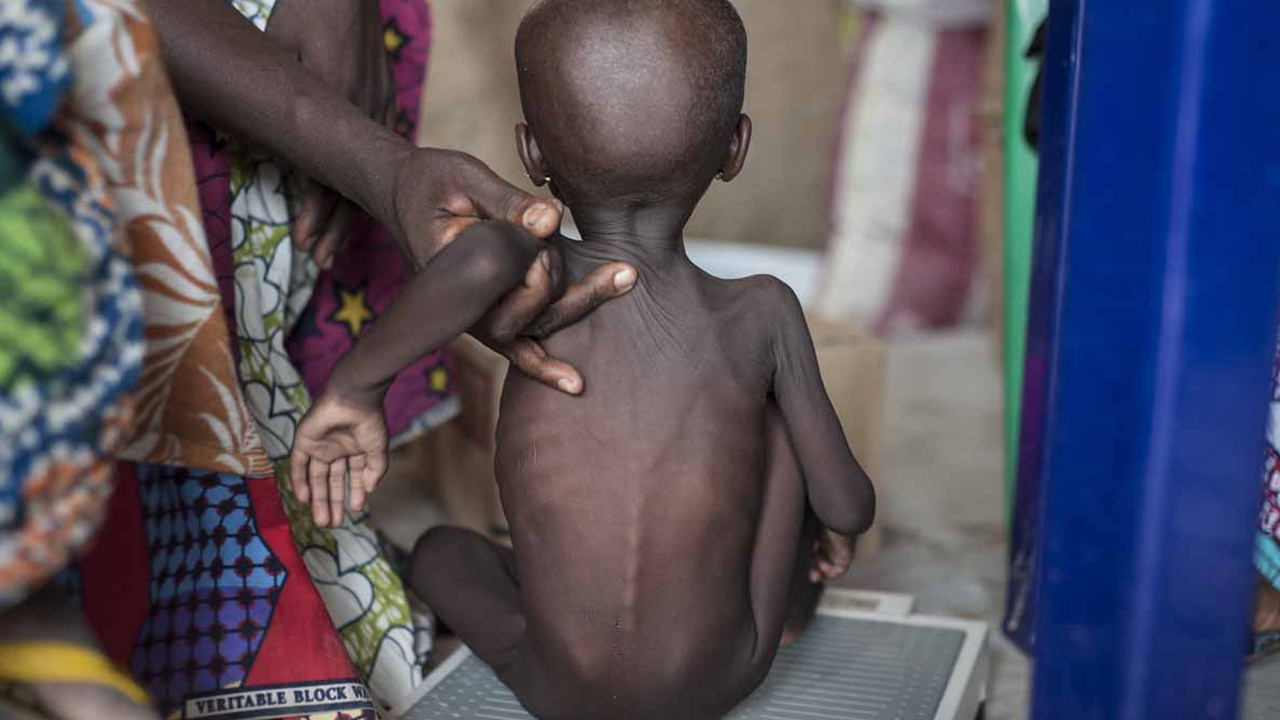Nutrition: Nigeria has not achieved significant reduction in stunting – Study
The Nigeria Global Exemplars in Stunting Reduction and Countdown to 2030 Country Case Study has shown that the country has not made any significant reduction in stunting. Stunting is a nutritional problem where there is low height-for-age. Speaking during the dissemination of the research in Abuja, Adebola Orimadegun, the principal investigator professor of paediatrics at […]

FILE PHOTO: Malnutrition
The Nigeria Global Exemplars in Stunting Reduction and Countdown to 2030 Country Case Study has shown that the country has not made any significant reduction in stunting.
Stunting is a nutritional problem where there is low height-for-age.
Speaking during the dissemination of the research in Abuja, Adebola Orimadegun, the principal investigator professor of paediatrics at the University of Ibadan, said, “Overall, the national level of stunting reduction is not too encouraging, but it is just moderate compared to other countries of equal gross national domestic product.”
He further said, “We tagged states that have achieved significant reduction as ‘exemplar’ while states that have not achieved significant reduction as ‘opportunity’; opportunity because they can copy or replicate the good things that exemplar states have done.
“Kano for instance is an exemplar state, while Yobe is an opportunity state in Northern Nigeria. The opportunity state has increase in stunting rate rather than decrease; based on quantitative data; from 42 per cent to 43 per cent, while exemplar state showed reduction.”
Dr Salma Anas Kolo, Director of Family Health at the Federal Ministry of Health, said in the steps analysed Nigeria made progress in political will and data, but did not do well in terms of insecurity and food security.
Represented by Dr John Ovuoraye of the ministry, she said the University of Ibadan, in partnership with the Federal Ministry of Health, led the study for Nigeria with the support of the Bill and Melinda Gates Foundation-Nigeria Country Office and the SickKids Centre for Global Child Health, Toronto, Canada.
He said stunting affected a child’s development, including learning and cognition.
Prof Zulfiqar A. Bhutta, Co-Director of SickKids Centre for Global Child Health, said the research had shown that Nigeria had made progress in improving health and nutritional indicators for women and children and had tremendous potential to do it even better because the progress across the country was uneven as a result of different factors.
The Minister of State for Health, Dr Adeleke Mamora, said the findings and recommendations from the study would go a long way to support government and stakeholders with sound evidence that could influence and shape programming and policymaking on stunting in Nigeria.
He said Nigeria made about seven-point drop in stunting rate from 43.1 per cent in 1990 to 37 per cent in 2018.
